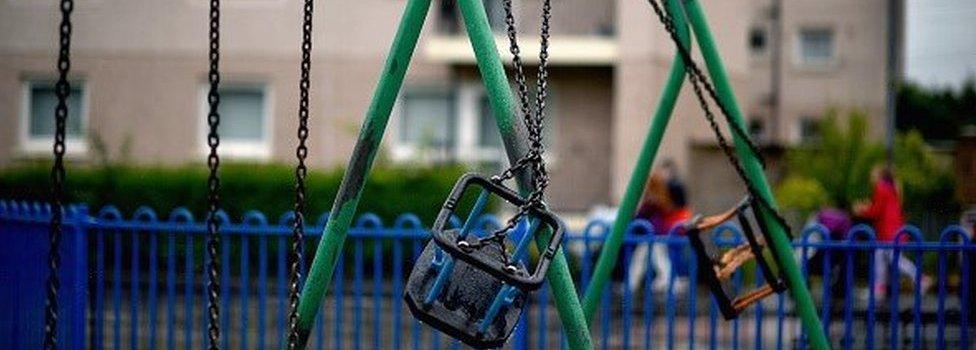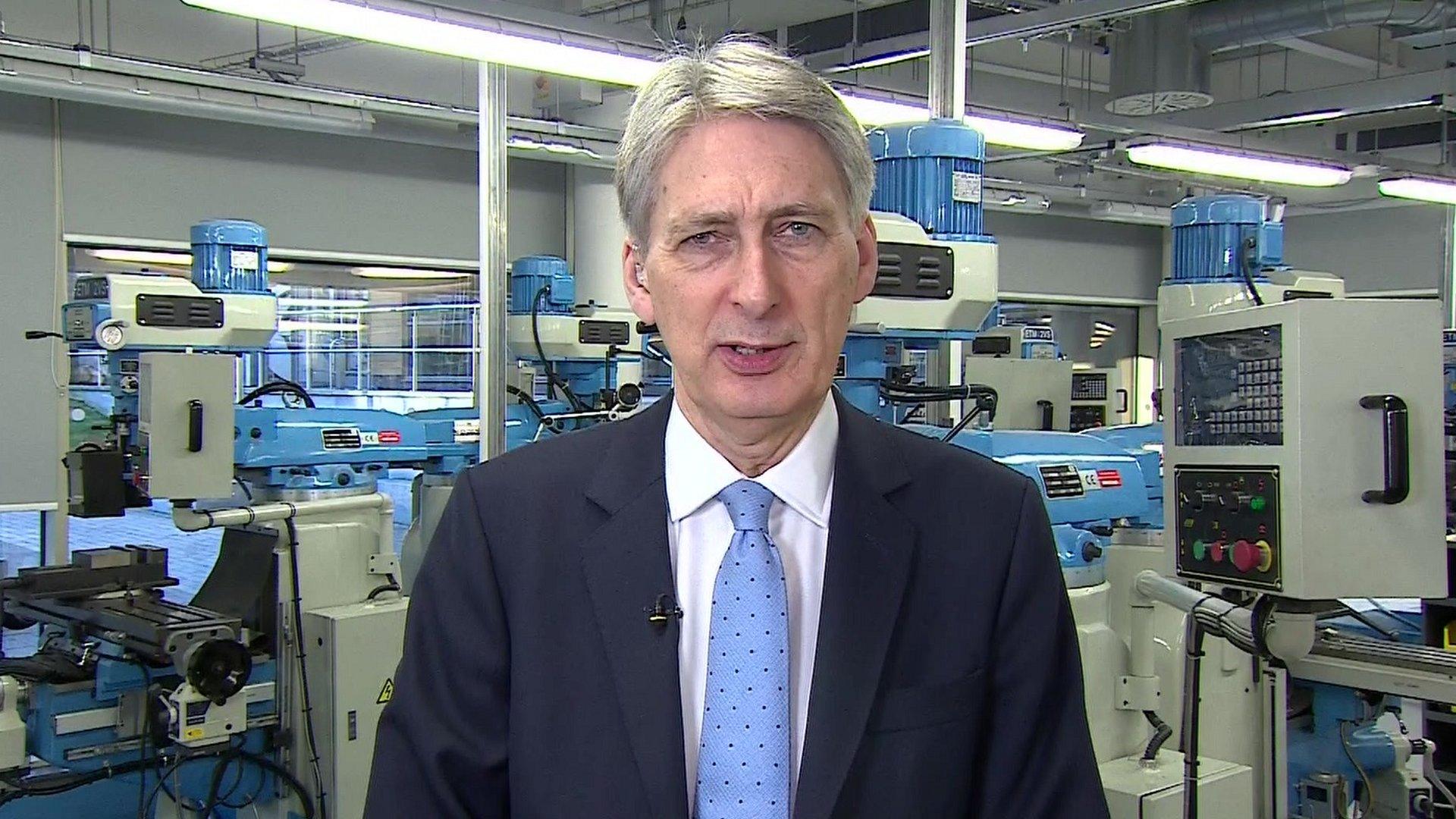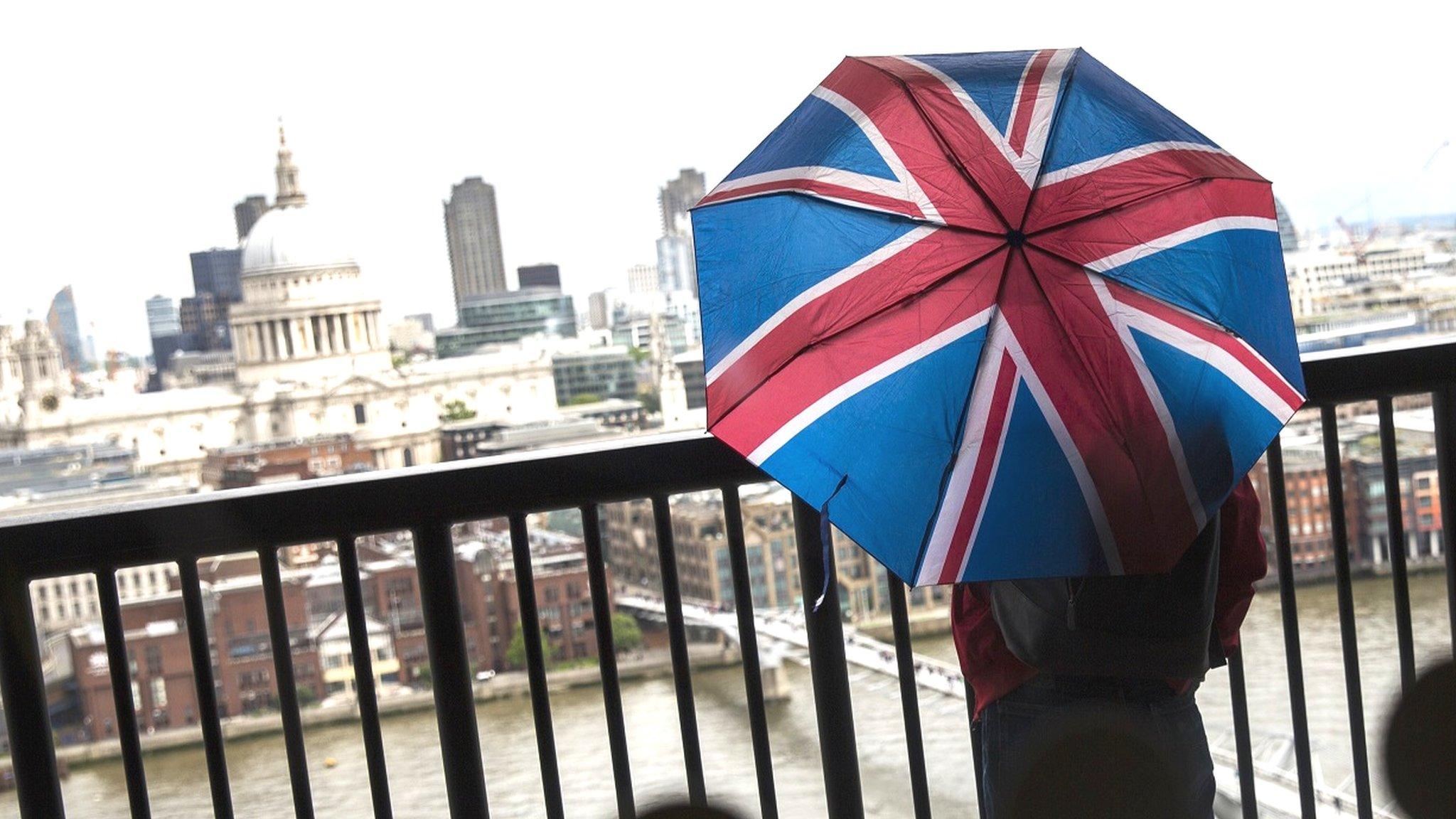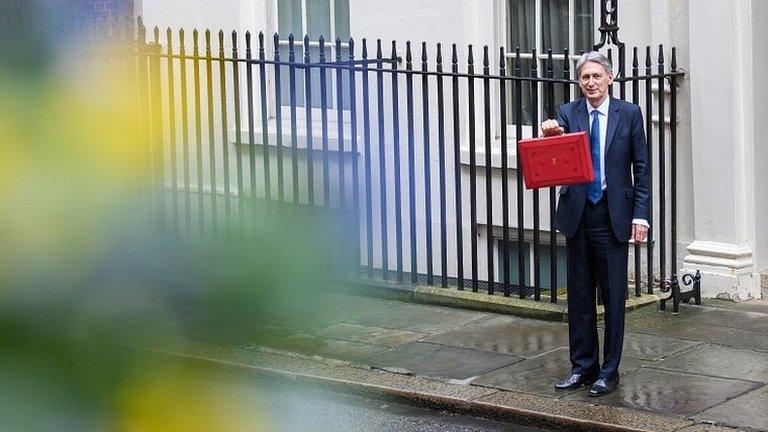Budget 2017: Squeeze on family finances 'extended until 2020s'
- Published
- comments

The squeeze on both family and public finances have been prolonged until well into the 2020s, according to a think tank's analysis of the Budget.
The UK is on course for an unprecedented 15 years of spending cuts and lost pay growth the Resolution Foundation said.
It will leave the poorest third of households worse off than in the years after the financial crisis, it said.
The Treasury says it has helped poorer workers by increasing the Living Wage.
The Budget watchdog - the Office for Budget Responsibility - forecast that government borrowing for 2016-17 would be £51.7bn - a fall of £16.4bn from its November forecast and £4bn lower than the 2016 Budget estimate.


"While the OBR at least delivered some good news on borrowing, the family finances picture has actually deteriorated since the autumn," said Torsten Bell, director of the Resolution Foundation.
"Britain is set for a return to falling real pay later this year, with this decade now set to be the worst for pay growth since the Napoleonic wars.
"Some households will feel the pinch more than others. The combination of weak pay growth and over £12bn of benefit cuts means that for the poorest third of households this parliament is actually set to be worse than the years following the financial crisis," he said.
According to its analysis of the Budget, the Resolution Foundation, which says its goal is to improve lives for people on low and modest incomes, predicts that average earnings are only set to return to their pre-crisis peak by the end of 2022.
'The real world'
On public finances, it said that despite the downward revision to borrowing forecasts, the UK was only on course to meet the government's objective of eliminating the deficit in 2025.
If it does so, that would be 15 years after the previous chancellor, George Osborne, had started implementing spending cuts and raising taxes.
Speaking on the BBC's Today programme, Chancellor Philip Hammond said he could have stuck to George Osborne's target of balancing the nation's finances by the end of this parliament but "that would have required us to squeeze the economy extremely hard, that would not have been a sensible thing to do".
"It would be a very poor government that said I'm going to ignore what's happening in the real world... the decision to leave the European Union has changed the game and Britain needs to prepare for the opportunities and challenges that lay ahead."

Analysis

Kamal Ahmed, BBC economics editor
Philip Hammond will find the analysis difficult to dismiss, he approvingly name-checked the think tank in his Budget speech yesterday.
On the big controversy of the day - the tax rise for the self-employed - the Resolution Foundation supports the government.
"The chancellor is right to begin tackling the unfair and expensive tax advantages enjoyed by self-employed workers by increasing the rate of National Insurance contributions they make," the organisation said yesterday.
On this far thornier issue - the incomes squeeze - it is far more waspish, saying that there has been "little policy action" in the Budget or last year's Autumn Statement to solve the crisis.
"The Budget offered the Office for Budget Responsibility and the chancellor the chance to respond to better than expected economic news in recent months, following grim forecasts about the outlook for Brexit Britain back in November's Autumn Statement," Torsten Bell, the director of the foundation, said.
"Both have largely ignored it.
"The big picture from yesterday's Budget is that the big squeezes on both the public and family finances have been prolonged well into the 2020s."
Mr Hammond has a political headache with the controversy over the rise in taxes for the self-employed.
He has an even bigger economic headache caused by stagnant incomes.

- Published9 March 2017

- Published9 March 2017

- Published8 March 2017

- Published8 March 2017
